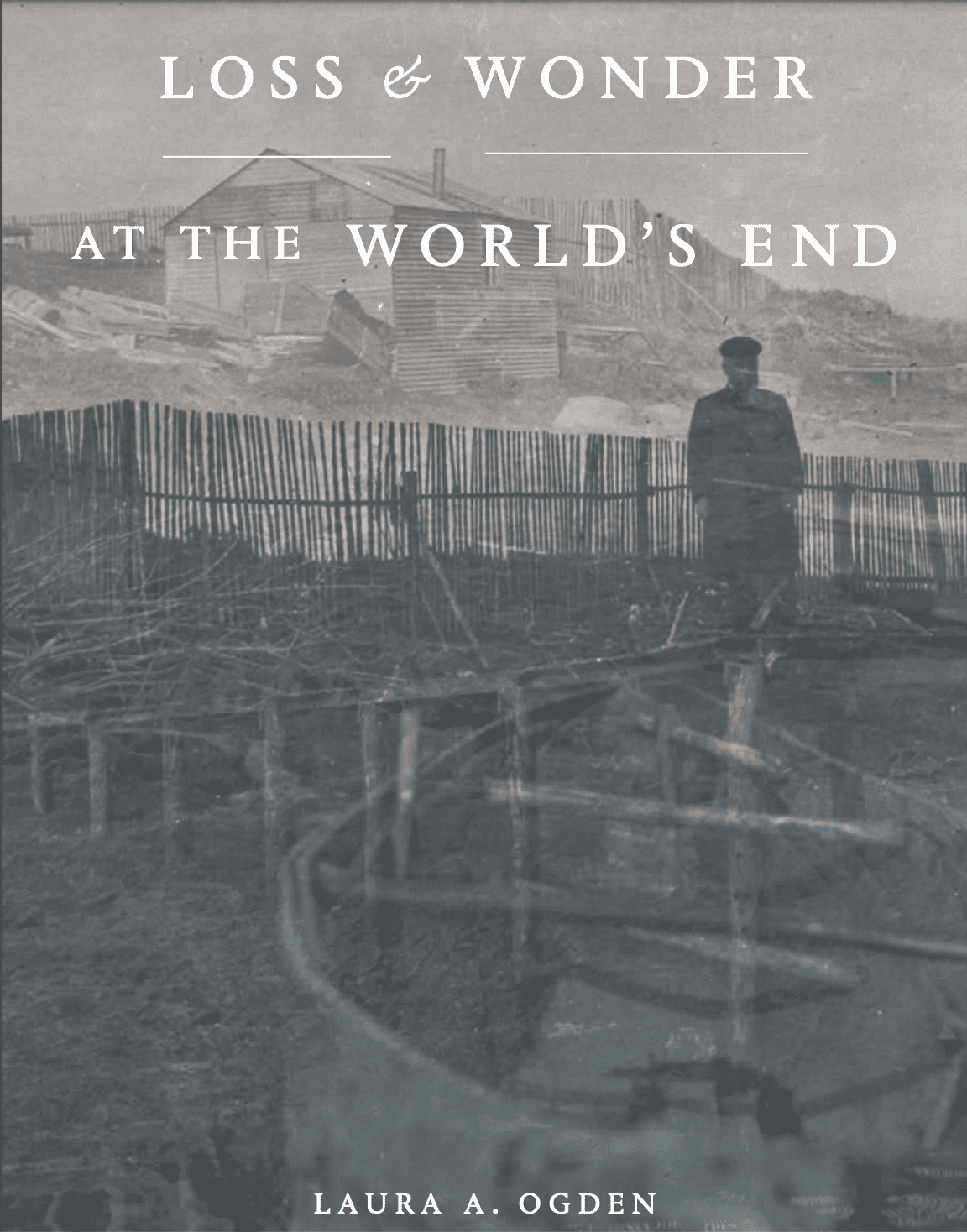Loss and Wonder at the World’s End by anthropologist and writer Laura A. Ogden has been published by Duke University Press. In a chapter on “Speculative Wonder,” Dr. Ogden discusses collaborating with Ensayos on Ensayo #2: Asunto Castor.
From Duke University Press:
In Loss and Wonder at the World’s End, Laura A. Ogden brings together animals, people, and things—from beavers, stolen photographs, lichen, American explorers, and birdsong—to catalog the ways environmental change and colonial history are entangled in the Fuegian Archipelago of southernmost Chile and Argentina. Repeated algal blooms have closed fisheries in the archipelago. Glaciers are in retreat. Extractive industries such as commercial forestry, natural gas production, and salmon farming along with the introduction of nonnative species are rapidly transforming assemblages of life. Ogden archives forms of loss—including territory, language, sovereignty, and life itself—as well as forms of wonder, or moments when life continues to flourish even in the ruins of these devastations. Her account draws on long-term ethnographic research with settler and Indigenous communities; archival photographs; explorer journals; and experiments in natural history and performance studies. Loss and Wonder at the World’s End frames environmental change as imperialism’s shadow, a darkness cast over the earth in the wake of other losses.
In Chapter Five, Dreamworlds of Beavers, after an interlude on Lewis Henry Morgan’s fascination with the architectural industry of beavers, Laura recalls a series of collaborative thought experiments with feminist artists and filmmakers Christy Gast and Camila Marambio. In these pieces of performance art or “undisciplined research,” the artists strive to make beavers visible participants in the “decision-making about their own future.”
“Throughout, I track the surprising ways in which a pair of human-sized beaver costumes attune their wearers to beaver life,” Laura writes.
This project has been supported by Karukinka Nature Park on Isla Grande, within Chilean Tierra del Fuego. Karukinka is managed by the Wildlife Conservation Society, a North American environmental organization. The project (“called Ensayos”) was developed to bring artists, social scientists, and natural scientists together to think about conservation problems at the park. The National Science Foundation’s Coupled Natural and Human (CNH) Systems program provided additional support for this project (PI Chris Anderson), as did support from the Claire Garber Goodman Fund at Dartmouth College.

